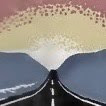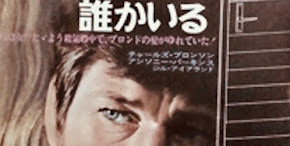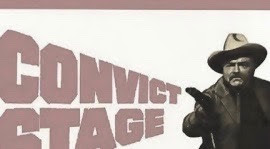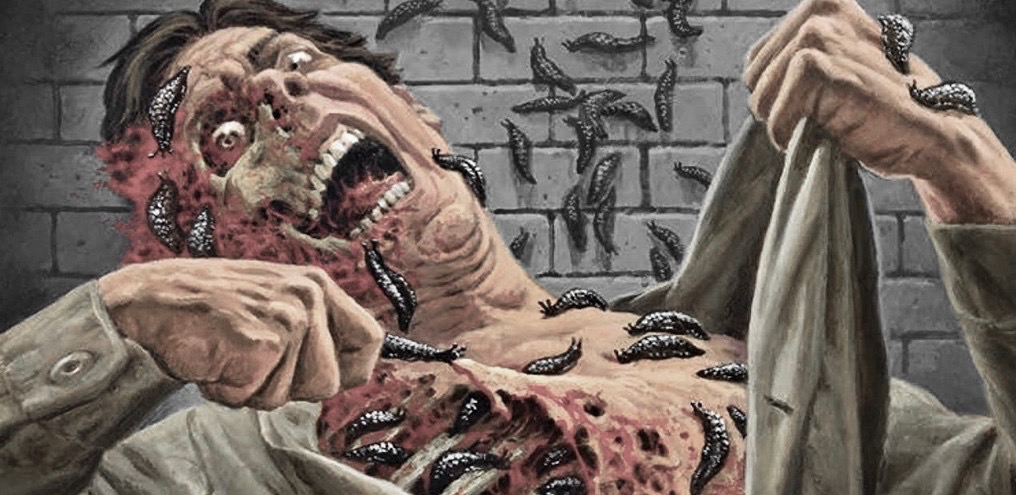 |
| Poster of THE LADY FROM SHANGHAI Year Released: 1947 |
Another potentially great Orson Welles post-CITIZEN KANE motion picture: a flawed yet intriguing 1947 Film Noir, hacked by studio editors during post-production with a melodramatic score that Welles detested...
In order to make (his then ex-wife) Rita Hayworth a nefarious femme fatalle, or to set her on another path aesthetically, he cut the iconic long hair that had sensuously draped down upon her lithe shoulders in GILDA, breaking hearts of men worldwide (which was timeless as years later, Morgan Freeman would get bedazzled in SHAWSHANK REDEMPTION). The studio didn't want their starlet to be so downright... vicious and cunning, which takes much of the bite out of this particular vehicle, named after THE LADY who learned her wily trade in one of the most cutthroat locales on Earth that both main characters had been to; and yet, while he merely visited this place, she worked and lived there...
 |
| Welles the actor's actor's actor |
Upon a yacht on a cruise Welles's Black Irish maverick Michael O'Hara is hired to charter, our gal sings a drowsy tune titled, "You Don't Love Me," a failed attempt for the studio to garner a number one hit, used as a "Variation of the Theme" within the overall soapy, melodramatic soundtrack. Mostly because of this, our beautiful antagonist becomes more of an ambiguous victim that perhaps Welles had intended, going far beyond her necessary act of reeling in a "Useful Idiot..."
 |
| Ted de Corsia for the set up |
Orson had already chosen a patchwork of stock music to drive his sparse yet convoluted maze forward, and yet, while much of the final cut belongs to the director (billed as
Production By as opposed to
Directed By)... surprisingly, he actually didn't mind how SHANGHAI turned out... the score broke his heart in this pulpy adventure that takes about twenty minutes to pick up, getting past a contrived, uninspired scene the studio ordered Welles to shoot at the 11th hour: where O'Hara and Hayworth's Elsa Bannister meet on a carriage ride seeming straight out of a musical – he the intrepid hero, she the lovely lass.
 |
| Foreign Posters Rule |
When SHANGHAI is fully underway, we never get too deep into the journey for O'Hara to "protect" this hypnotic woman from her famously crooked lawyer husband on a Round-the-Cape cruise, ultimately headed to San Francisco...
 |
| Orson Welles and Glenn Anders |
But depth doesn't matter when you have Hayworth married to a crippled Everett Sloane, compared to as a shark in a terrific scene where Welles, using an Irish accent without once breaking from it (though it'd be great if Joseph Cotton was an American Mike O'Hara and Welles played Sloane's villain role), lectures his seedy passengers for speaking with such verbal rancor to and about each other. And yet, as sublime as
KANE and
JOURNEY INTO FEAR alumni Sloane is ("He Was Good" says one character in THE WONDER BOYS), the actor who steals the picture is Glenn Anders as Sloane's instigating lawyer-partner, George Grisby (the face of Jack Warden with the voice of Charles Nelson Reilly) who, while in South America, during what are the best moments, gives the rogue captain his
real challenge: this, of course, includes murder once they're docked in Frisco where Noir staple Ted de Corsia is a prime factor. As for casting a no-name like Anders in such an important role, this was a perfect accident, and one the director might have had to convince the bigwigs into. Having remembered Glenn in an obscure early-1930's film, LAUGHTER, it was the right choice, indeed.
 |
| LADY FROM SHANGHAI WellesCurveScore: ***1/2 |
Following a somewhat contrived courtroom sequence with throwaway humor bordering on minstrel (including a sneezing jury member), the famous climactic showdown inside the House of Mirrors isn't all the film has to offer, but it's an iconic highlight later borrowed in movies like ENTER THE DRAGON and
so many others...
 |
| Mike O'Hara |
And to correct (or rather, add to) something written earlier: Orson was in fact upset over
one more studio decision other than the glossy score: He'd stayed up all night creating the entire funhouse interior, that his pawn-like character winds up in after the courtroom verdict doesn't point so favorably in his direction, and so, initially, there was about five minutes of O'Hara being thrust into the surreal purgatory before even reaching those finale mirrors...
This rudimentary thrust is cut down to thirty seconds, or less, and the music gets even worse than corny, "Mickey Mousing" or as Welles had put it, sounding very "Disney," which is liken to a cartoon when music fits actual physical movements. In this case, when O'Hara's feet stumble upon the marked-up floor after sliding down the entrance chute, vibes mime several footsteps thereafter.
And so, like so much of his work, you can only say, about particular aspects of what's been considered a perfect endeavor, is... "If Only." But for the most part, enjoy what's here. Leading to the signature conclusion, the film itself isn't altogether flawless, and TOUCH OF EVIL would provide his best (and one of
the best) Film Noirs in history (considered by some "The Last Noir"); hell, even
THE STRANGER is more tight and suspenseful. SHANGHAI, though, delivers effectively: It's a strange trip that, seconds after THE END appears and we fade to black with that music bursting, only Orson Welles could have taken you on.































































No comments:
Post a Comment
Note: Only a member of this blog may post a comment.